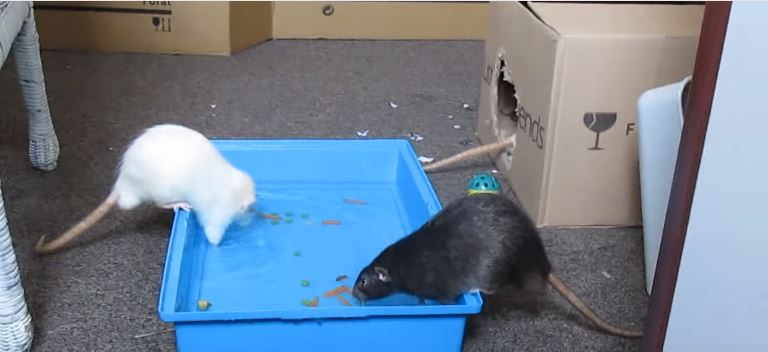Are rats dangerous to cats, dogs, or other pets?
Most of you would probably not keep a rat as a pet. First, it’s hard to tell where they hide because they just pop out of nowhere. Second, if there were already cats living with you, then it would seem as if you’re only waiting for onebigdisaster. Would you let your other pets play with a rat?

Danger in waiting
Supposing you don’t want to do anything with rats. The other side of the story would go like this;is there a pest problem to start with?
People experiencing rat problems (in their houses) usually compromise the entire safety of those who live there. One majorcause for danger is when pet owners lace the “rat’s bait” with poison, and suddenly the dog or cat had taken a bite to it instead.
Big vs small
Since rats are (by all means) smaller than a dog or a cat, there is no danger when it comes to a pet’s physical well being. Cats instinctively prey on rats so the only obvious setback here is if the owner is trying to get rid of these household pests through poisoning. If your pet ingests a poisonous substance, it will likely suffer from what we call---toxicosis. Read on.
Cause and effect
Most of the ingredients used in manufacturing a rat killer consist of an anticoagulant drug. This anticoagulant drug (or better known as warfarin sodium) works on the bloodstream to stop blood from thickening. If a rat poison is ingested, the active drug goes through the veins to cause severe bleeding. However, the effect is only expected to be taking place after a day or two.
Small but deadly
Using a rat poison is fairly effective for those who aretrying to get rid of rats in their household. But for a person who has a pet, this method poses more risk. Even if your cat or dog won’t die after a couple of days (by accidentally ingesting small amounts of warfarin), the chance of toxicity is still high. Watch out for these signs;
• Malaise or Lethargic state
• Bloated belly due to accumulated blood
• Tinges of blood in the feces and urine
• The gastrointestinal tract bleeds
• Experiencing nosebleed
• Gums are pale
• Bruises
Rats are also carriers of leptospirosis, rabies and other harmful diseases. Leptospirosis is acquired through a rat’s urine. Basically that’s the bigger problem one has to face when they let a rat come inside their houses.
Are rats dangerous to cats, dogs, or other pets?
RAT CONTROL: We specialize in rat control projects. Call us now for rat control in your city or town.
Go back to the
How to get rid of rats page to learn more about Are rats dangerous to cats, dogs, or other pets?
To find out our prices for rat control, visit our
rat removal prices page.


